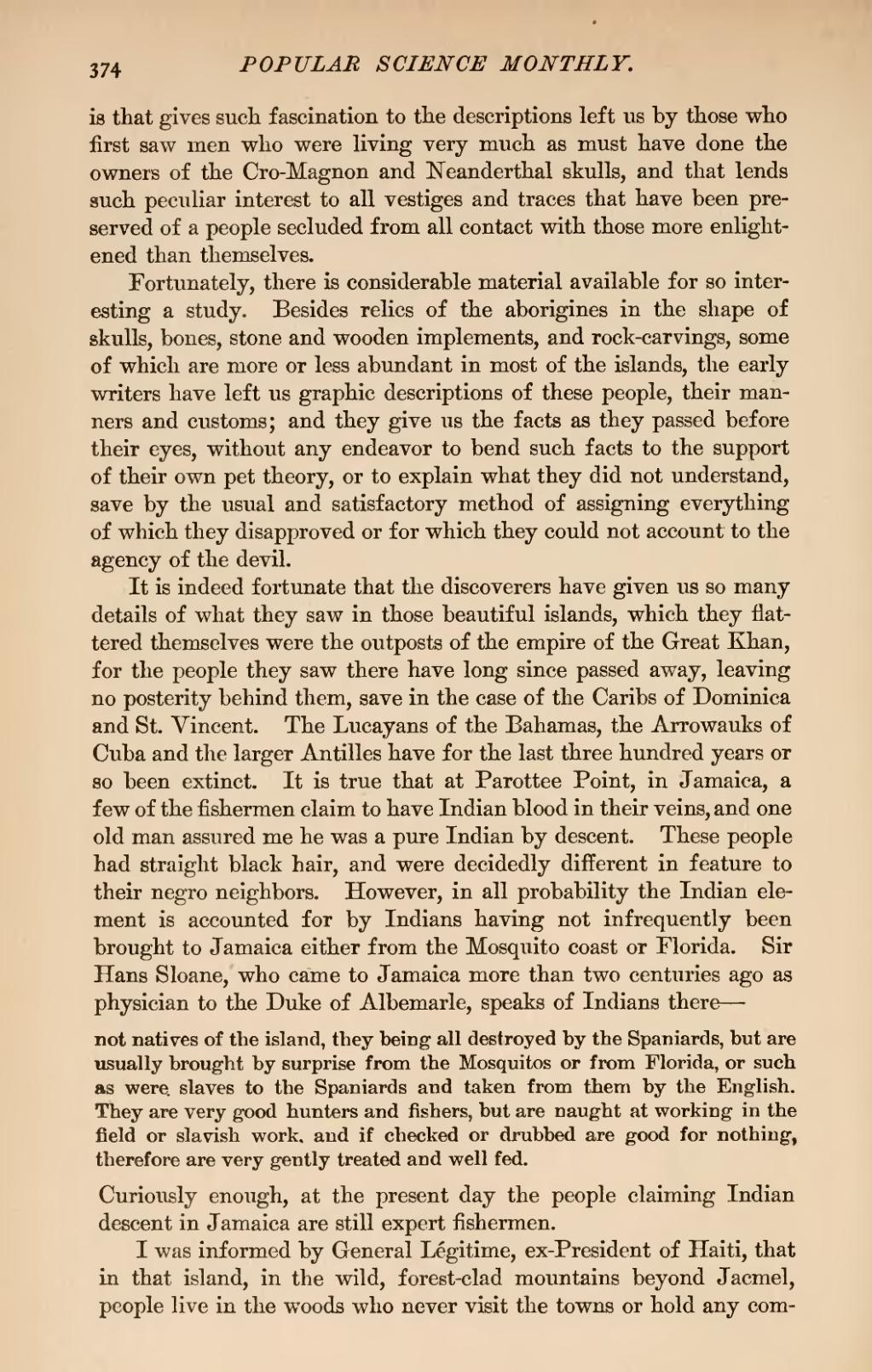is that gives such fascination to the descriptions left us by those who first saw men who were living very much as must have done the owners of the Cro-Magnon and Neanderthal skulls, and that lends such peculiar interest to all vestiges and traces that have been preserved of a people secluded from all contact with those more enlightened than themselves.
Fortunately, there is considerable material available for so interesting a study. Besides relics of the aborigines in the shape of skulls, bones, stone and wooden implements, and rock-carvings, some of which are more or less abundant in most of the islands, the early writers have left us graphic descriptions of these people, their manners and customs; and they give us the facts as they passed before their eyes, without any endeavor to bend such facts to the support of their own pet theory, or to explain what they did not understand, save by the usual and satisfactory method of assigning everything of which they disapproved or for which they could not account to the agency of the devil.
It is indeed fortunate that the discoverers have given us so many details of what they saw in those beautiful islands, which they flattered themselves were the outposts of the empire of the Great Khan, for the people they saw there have long since passed away, leaving no posterity behind them, save in the case of the Caribs of Dominica and St. Vincent. The Lucayans of the Bahamas, the Arrowauks of Cuba and the larger Antilles have for the last three hundred years or so been extinct. It is true that at Parottee Point, in Jamaica, a few of the fishermen claim to have Indian blood in their veins, and one old man assured me he was a pure Indian by descent. These people had straight black hair, and were decidedly different in feature to their negro neighbors. However, in all probability the Indian element is accounted for by Indians having not infrequently been brought to Jamaica either from the Mosquito coast or Florida. Sir Hans Sloane, who came to Jamaica more than two centuries ago as physician to the Duke of Albemarle, speaks of Indians there—
Curiously enough, at the present day the people claiming Indian descent in Jamaica are still expert fishermen.
I was informed by General Légitime, ex-President of Haiti, that in that island, in the wild, forest-clad mountains beyond Jacmel, people live in the woods who never visit the towns or hold any com-

